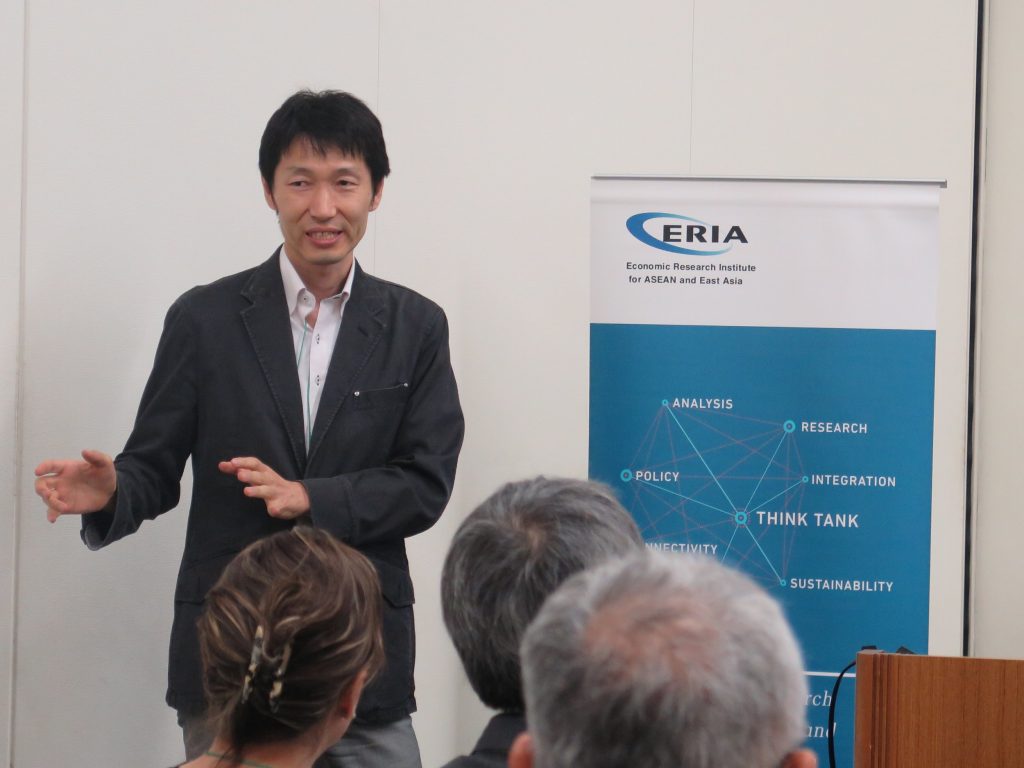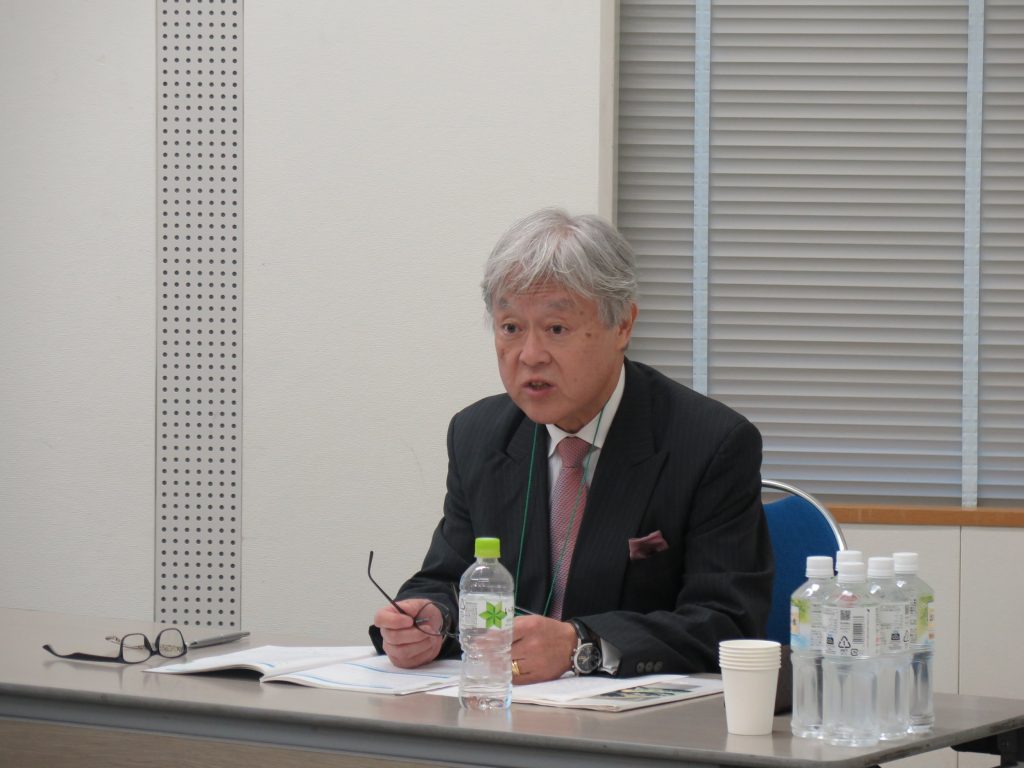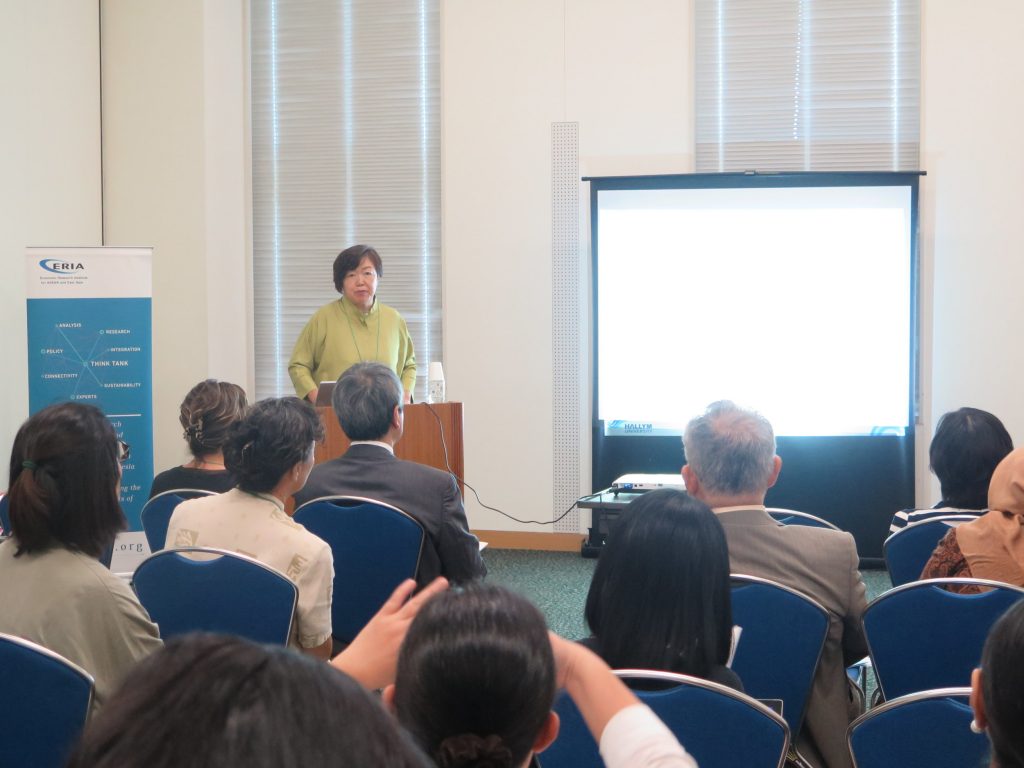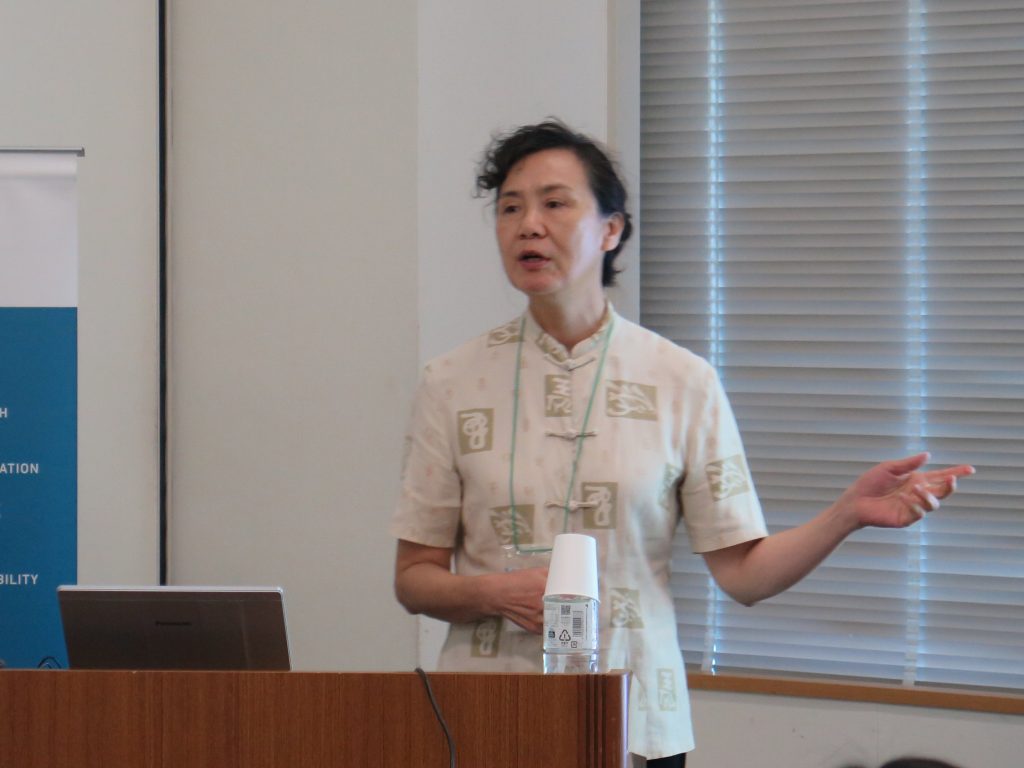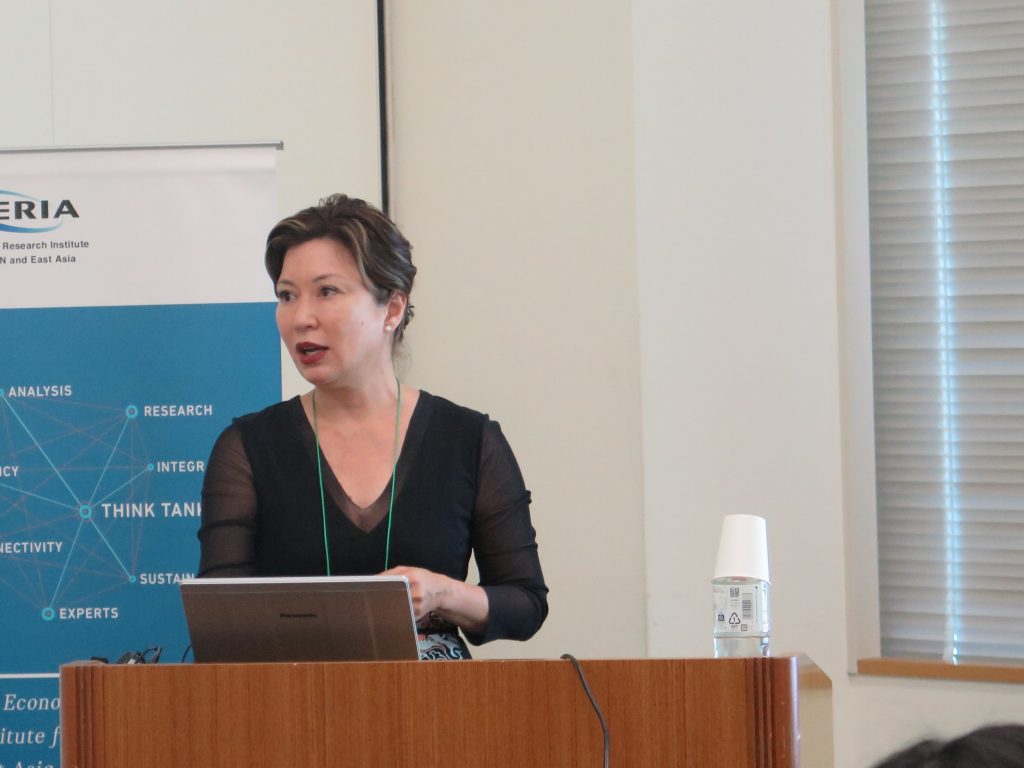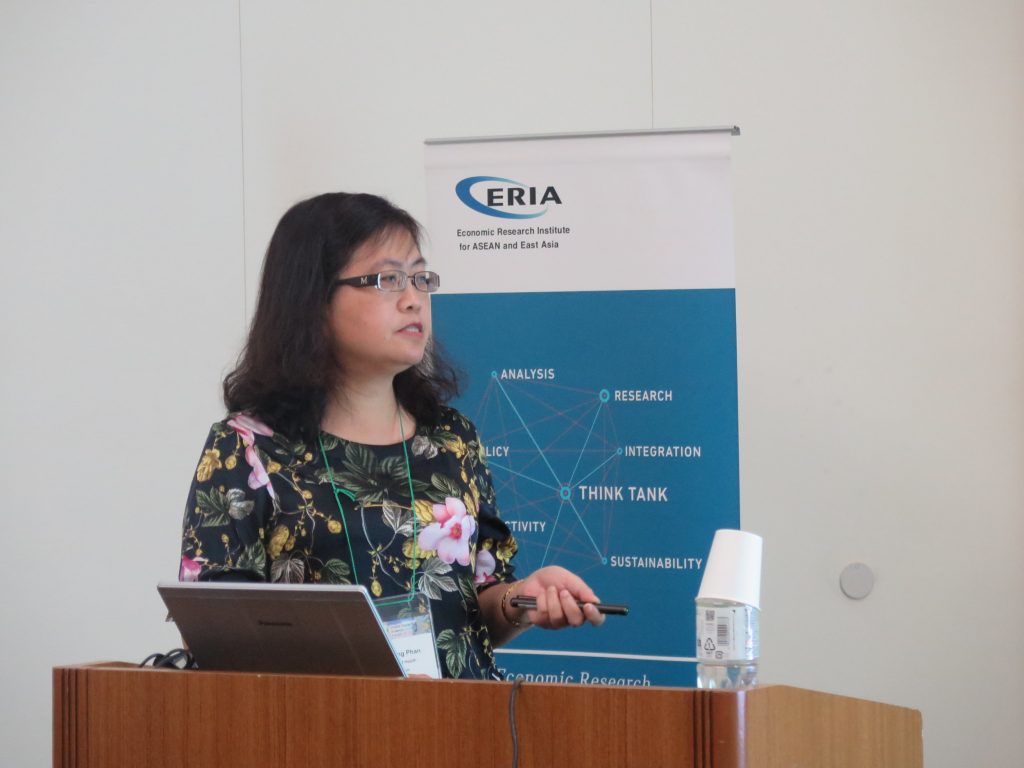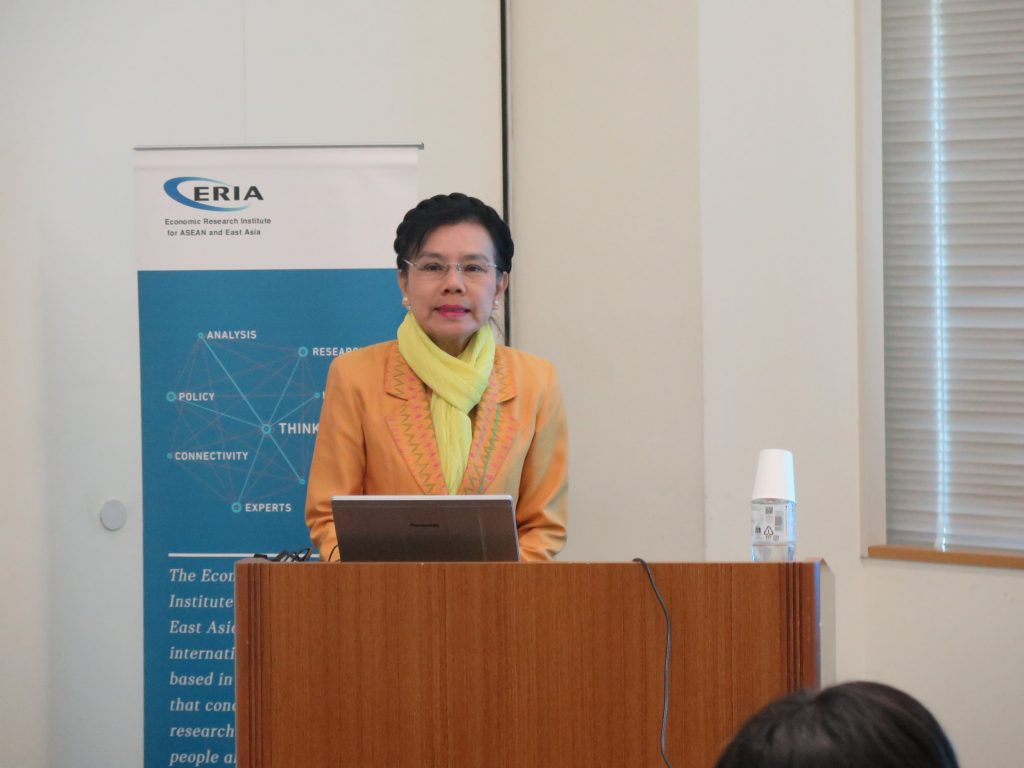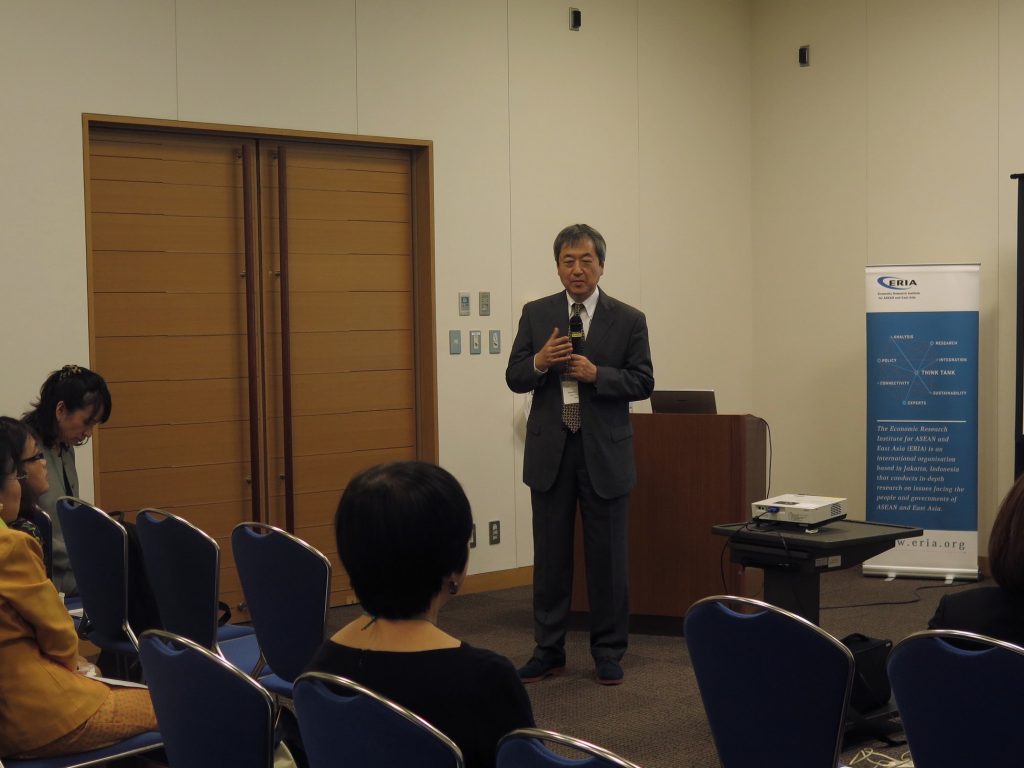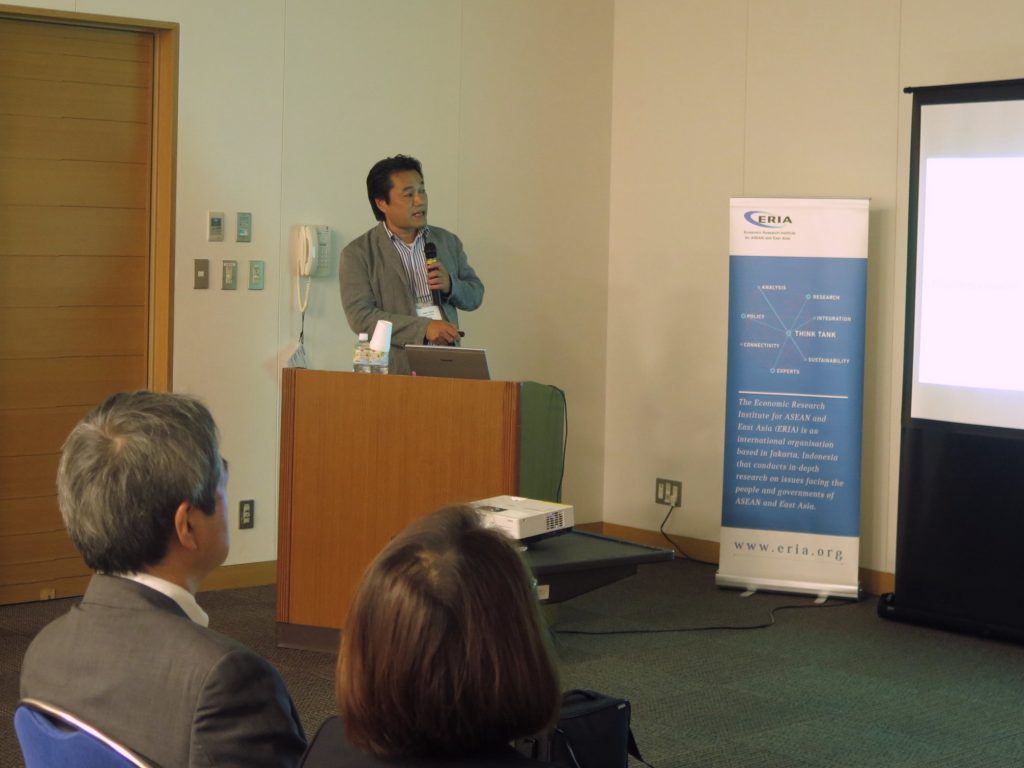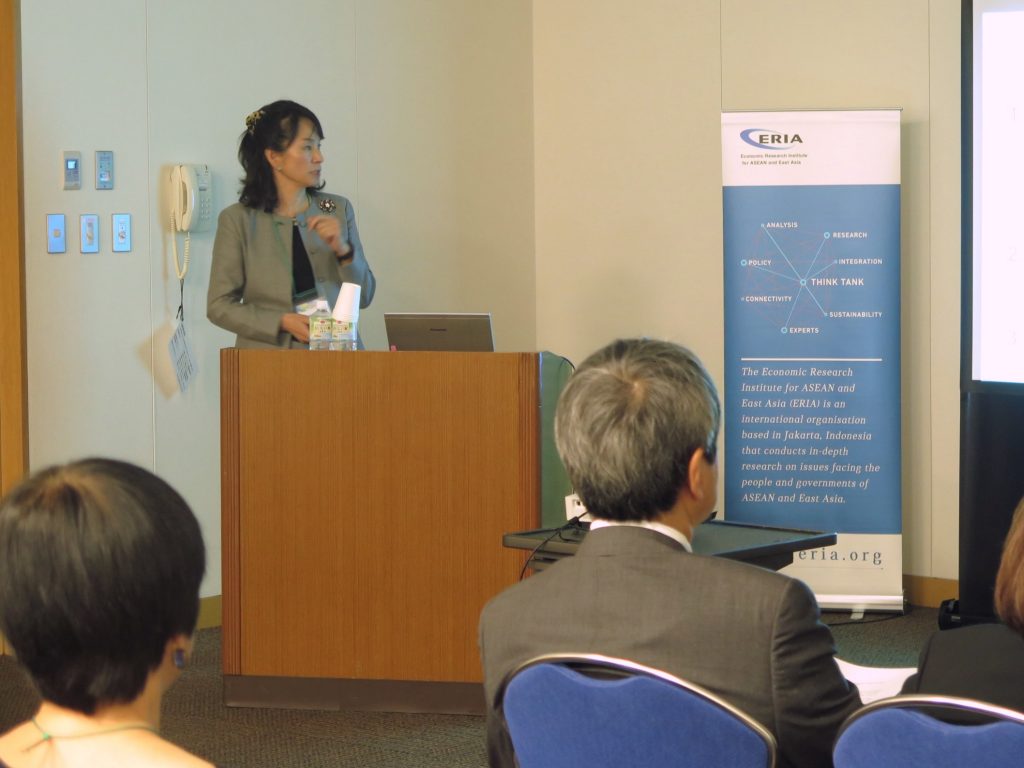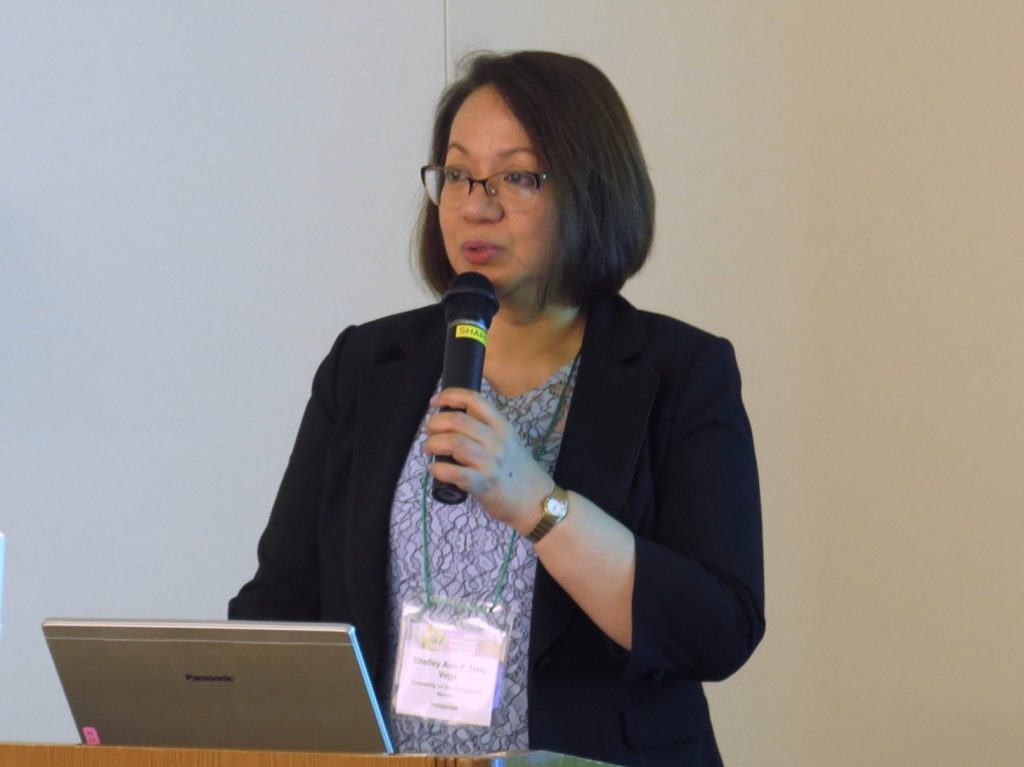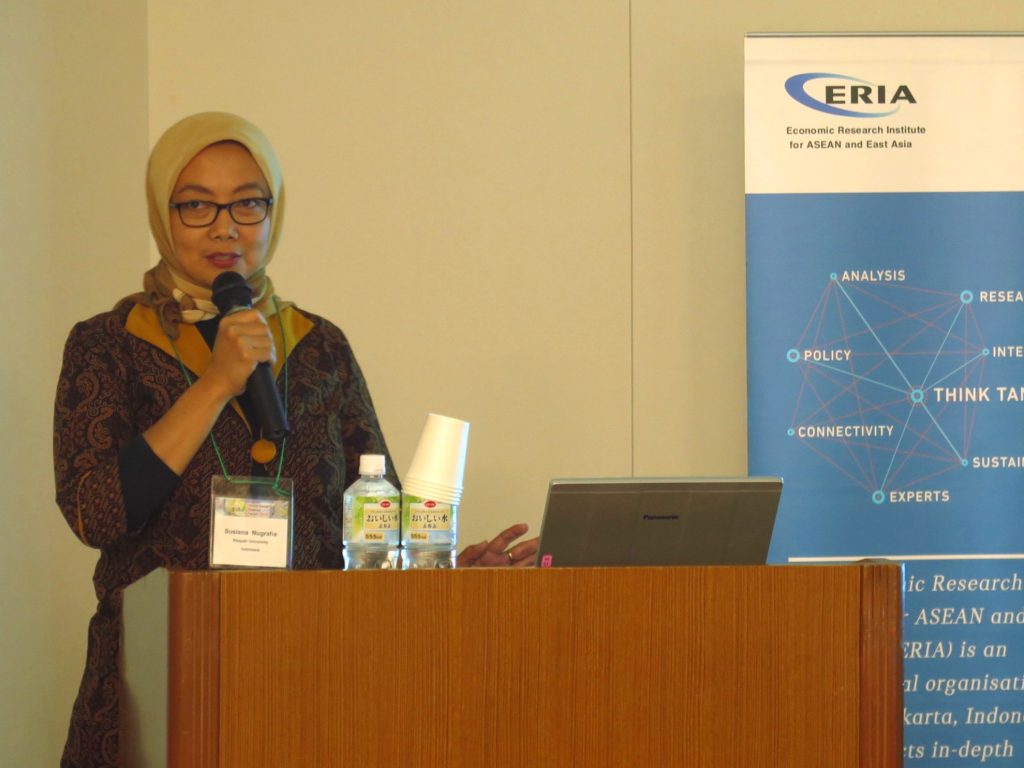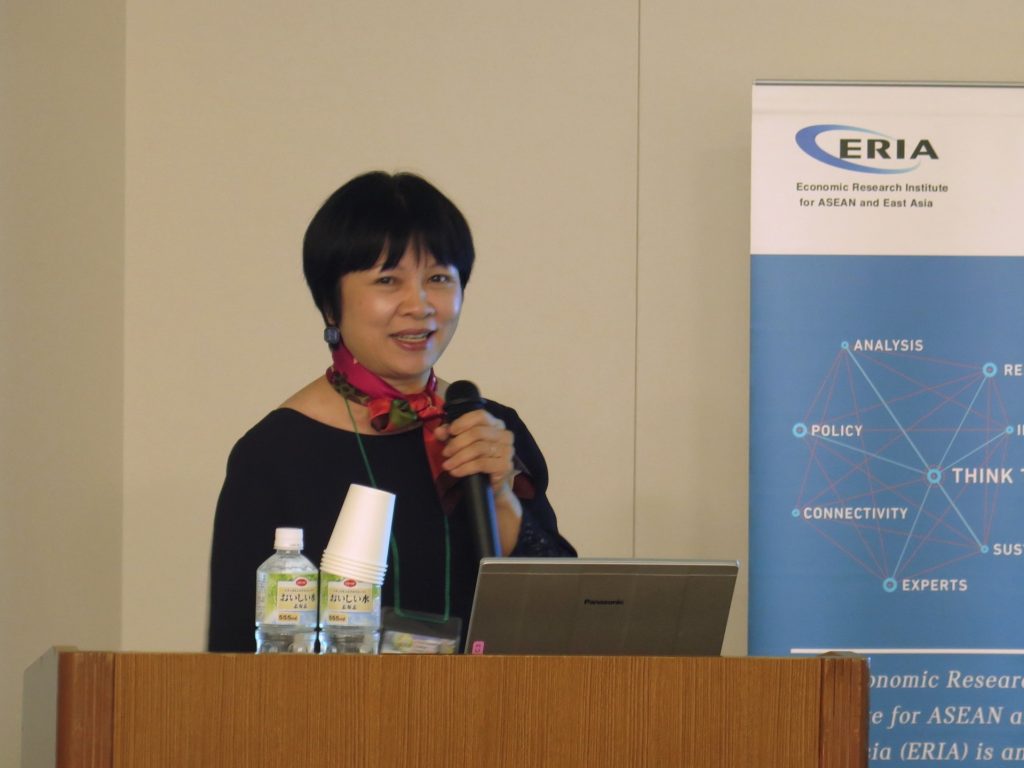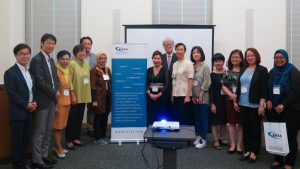 Under the auspices of AHWIN, the Economic Research Institute for ASEAN and East Asia (ERIA) partnered with Nihon University (NU) to organize two sessions at the 4th World Social Science Forum (WSSF) 2018 in Fukuoka, Japan. The WSSF is a forum to gather researchers, policymakers, funders, and other stakeholders to discuss significant issues related to social science globally and determine future priorities for international social science. The theme of WSSF 2018 was Security and Equality for Sustainable Futures.
Under the auspices of AHWIN, the Economic Research Institute for ASEAN and East Asia (ERIA) partnered with Nihon University (NU) to organize two sessions at the 4th World Social Science Forum (WSSF) 2018 in Fukuoka, Japan. The WSSF is a forum to gather researchers, policymakers, funders, and other stakeholders to discuss significant issues related to social science globally and determine future priorities for international social science. The theme of WSSF 2018 was Security and Equality for Sustainable Futures.
Attended by Their Imperial Highnesses the Crown Prince and Crown Princess of Japan, the opening ceremony was held on the first day, September 25, 2018. The ERIA-NU sessions took place two days later.
Dr. Osuke Komazawa, ERIA’s special advisor to the president for healthcare and long-term care policy, delivered opening remarks, welcoming the participants and explaining what would be discussed in the two sessions.
Session 1: National Policies, Systems, and Practices of Long-Term Care in Asia
Prof. Koichi Ogasawara of Tohoku Fukushi University of Japan, Professor Emeritus of Saitama University, moderated the first session. He summarized Asia’s challenges on population aging in light of the fact that Asia is the “world’s center of aging in terms of its speed and the number of older people.” He also talked about the institutionalization process of Japan’s long-term care, concepts and tools related to that, and the service provision system of Japan’s long-term care insurance.
Prof. Ogasawara’s presentation was followed by the five other panelists from the Republic of Korea, China, Singapore, Viet Nam, and Thailand. The panelists were asked to talk about the policy response to increasing long-term care needs in an aging population, institutional structures of care service provision systems, and policy consideration on the use of family-public-market resources of each country.
Prof. Hyunsook Yoon, from Hallym University of South Korea, gave an overview of Korea’s long-term care insurance, which was launched in 2008, and explained the policy issues surrounding the current long-term care system, especially how to improve the quality of the care workforce and care facilities. Prof. Yun Zhou from Peking University described the history of population policy in China as it has affected the long-term care of the elderly. She also explained the ongoing five-year plan of the government of China, which promotes long-term care of the elderly, as well as a pilot project of long-term care insurance in big cities that started in 2016. Associate Prof. Angelique Chan, executive director of the Centre for Ageing Research and Education, DUKE-NUS Medical School, talked about the fact that in Singapore, the current long-term care services are not a preferred occupation for foreign domestic workers. She also discussed several community-based pilot models of long-term care and the structure of long-term care insurance in Singapore.
Dr. Phan Hong Van of the Health Strategy and Policy Institute, Ministry of Health of Viet Nam, briefed the audience on the current status of the rapidly aging population of Viet Nam. She stated that most older people who need care in Viet Nam are taken care of by their families and she provided some policy recommendations, such as the development of the long-term care system, increasing the awareness of the long-term care system, and human resource development for long-term care.
The last panelist, Dr. Puangpen Chanprasert from the Department of Health, Ministry of Public Health of Thailand, provided an explanation about the development of long-term care policy in Thailand and the service provision system of long-term care depending on the level of administrative agencies from local to central government. She also talked about pilot projects for long-term care and the budget allocation from the National Health Security Office to long-term care services.
Session 2: The Long-Term Care Workforce in the Era of Population Aging—Toward Sustainable Mobility of the Long-Term Care Workforce
The second session was moderated by Dr. Wako Asato from Kyoto University. He offered an estimate of foreign domestic workers in East Asia, outlining several migration channels to Japan for those in the field of elderly care and the current obstacles to making long-term care seem like a viable career choice. This session had paneiists from Japan, Indonesia, the Philippines, and Viet Nam.
Prof. Noriko Tsukada, from NU, presented the outcomes of her study in which she interviewed the administrators of care facilities in Japan that accepted foreign caregiver candidates under the Economic Partnership Agreements (EPA) between Japan and Indonesia or the Philippines. The study revealed that the foreign candidates performed well overall in terms of language skills and care practices despite a lot of difficulties raised by the administrators. She also offered a briefing on the recent expansion of visa statuses for foreign care workers; however, she emphasized that it is just one of the measures by which Japan is seeking to overcome the shortage of its care workforce. Prof. Shelley Dela Vega, College of Medicine, University of the Philippines, stated that the Philippines is one of the major sources of domestic care and health care workers and raised issues in relation to the Philippines’ status as a sending country. The country’s lack of education in terms of care for people with dementia was among the issues raised. She offered suggestions to improve the curriculum of healthcare professionals and caregiver training courses with the inclusion of geriatrics and gerontology focusing on community-based care and to strengthen regional cooperation to achieve mutual recognition agreements on nursing.
Ms. Susiana Nugraha, vice chairperson of the Center for Ageing and Family Studies, University of Respati Indonesia, talked about the policies and practical procedures for the deployment of Indonesian overseas workers. She also talked about the EPAs between Indonesia and Japan, under which Japan accepts Indonesian candidates of registered nurses and certified care workers. She pointed out some facts, such as the low passing rates of the national examination of EPA candidates and the cost to be shouldered by the candidates, and completed her presentation by emphasizing the need to create a win-win relationship through capacity development.
Dr. Khuat Thu Hong, the director of the Institute of Social Development Studies of Viet Nam, explained the structure of the programs for sending care workers to several advanced economies including Japan and Germany. She also discussed the challenges of the overseas care worker program, such as language proficiency, living costs abroad, or the fact that care work is not attractive to many people. Finally, she highlighted the importance of strengthening the legal framework of emigration to avoid illegal brokerage and to protect overseas workers.


